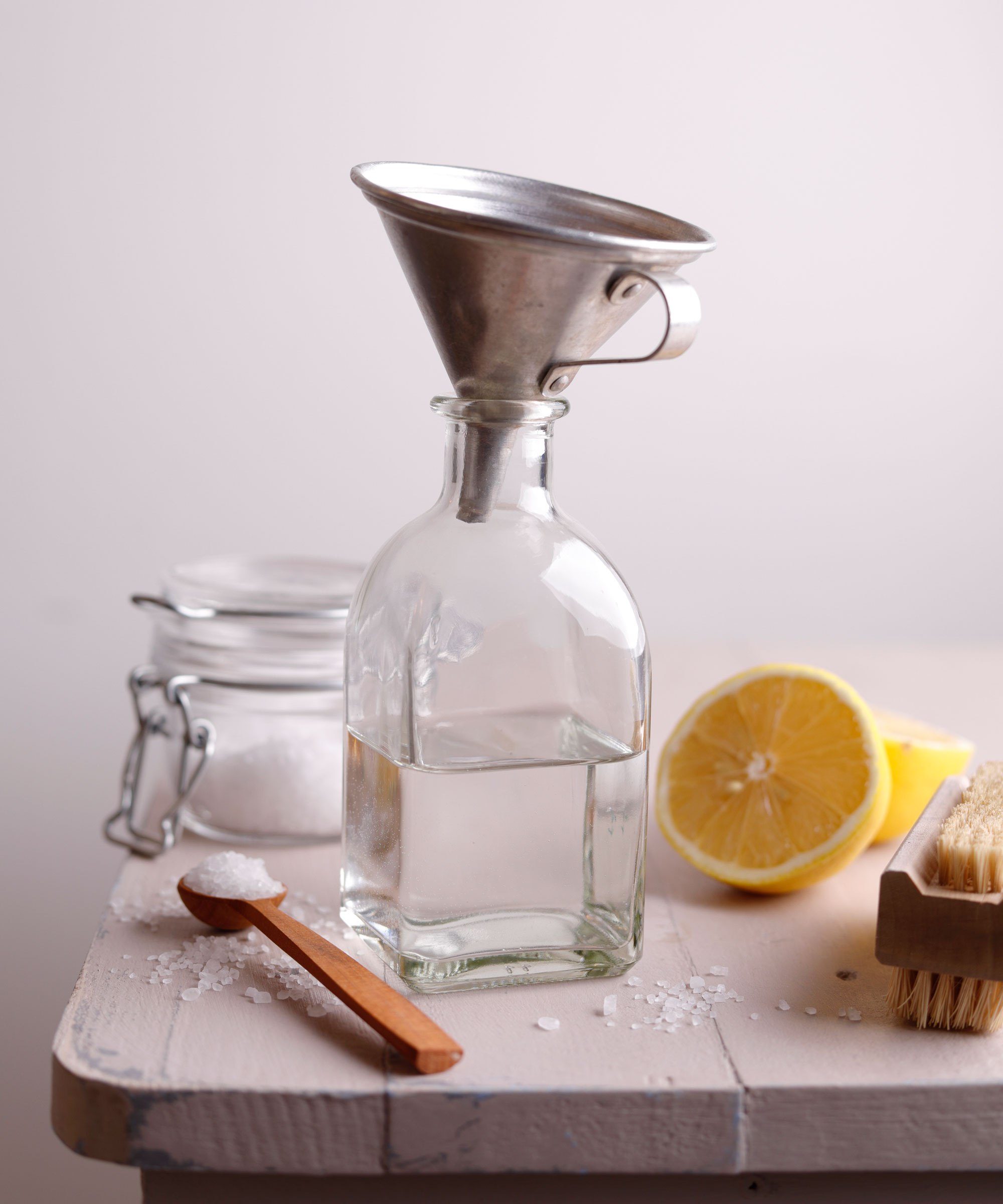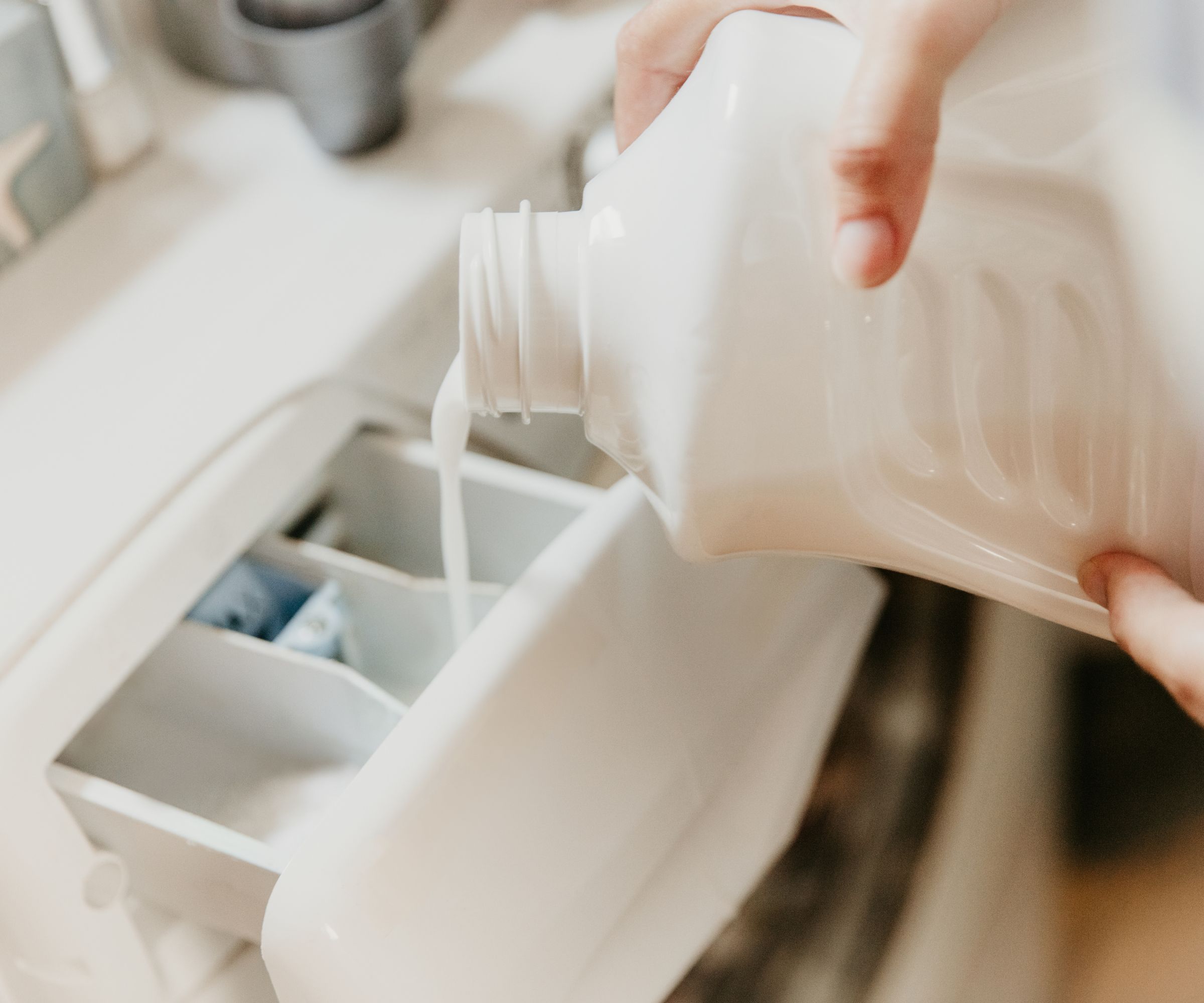
Given that our washing machines use soap and water to clean our clothes, we would assume that means they ‘clean themselves’.
However, the fatal mix of sticky laundry detergent, lots of water, and rubber seals and pipes often results in mold, mildew, and other rotten-smelling bacteria that can leave a musty odor lingering even after we have cleaned a washing machine by hand.
So, how do you clean a washing machine that smells to bust musty odors? Professional cleaners say it comes down to these six steps.
How to clean a washing machine that smells
Even the best washing machines are susceptible to nasty smells that can be hard to shift, especially if they are coming from the inner workings of the appliance rather than the drum itself.
‘Contrary to popular belief, washing machines do not clean themselves,’ begins Michael Forbes, product specialist from AEG. ‘Whilst they help remove unwanted grime and dirt from our clothes, to ensure clothes come out clean every time it’s important washing machines receive the proper care. This is because the dirt that comes off our clothes, combined with the detergent and softener we use, can build up inside the machine.
‘A maintenance wash should be done at least once a month to keep the machine in the best possible condition,’ he adds.
Luckily, there are a few odor-busting cleaning tips that can help clear up this odor before it seeps into your clothes.
1. Run a cycle with vinegar

Cleaning with vinegar is the number one way to get rid of musty odors, and it is perfect for cleaning a washing machine to get rid of smells.
‘Run your empty washer on a hot water cycle with 1-2 cups of white vinegar instead of your normal detergent. The vinegar acts as a natural deodorizer, and the hot water and vinegar combo helps to deter mildew growth,’ explains Kathy Turley, cleaning expert from Home Clean Heroes. ‘Then, run your washer on a second hot water cycle only (with no additional vinegar or detergent). If you notice debris still in the washer before you do this step, you can add about 1/2 cup of baking soda to clear any of that debris and build up away.’
2. Scrub the detergent drawer

'It is not only the drum that you need to clean when tackling musty washing machine smells,' reminds Heather Nixon, sustainability, NPD, and regulatory manager at Bio-D. The detergent drawer and any other removable parts, such as filters, will need a good scrub, too.
‘Remove and wash out the drawer using a toothbrush to get into those difficult places, letting it dry before replacing it back into the machine. You may also need to wipe out the slot it goes into, as mold can develop on the water jets that carry the detergent to the drum.’
If soap and warm water aren’t enough to tackle build-up, consider cleaning with baking soda by creating a paste with water and allowing it to sit in the drawer and the slot for 15 minutes before wiping away. This will help to both deodorize the detergent drawer and remove any staining to get your washing machine looking like new again.
3. Clean seals by hand

The gaskets around the washing machine doors (especially on front-loaders) are particularly prone to mold and discoloration. This is because water and soap tend to sit there even after the cycle has finished draining.
To tackle musty smells, Heather Nixon, laundry care expert, suggests dealing with these spots by hand using a cloth or soft-bristle brush soaked in white vinegar to remove mold from the rubber seal on a washing machine. Don’t forget to ‘clean around the door and hinges where dirt can go unseen,’ she adds.
4. Dry the drum

A common washing machine mistake that causes musty odors is leaving the washing machine drum wet after use. After deep cleaning your washing machine to remove smells, Lina DaSilva, cleaning expert and founder at Toronto Shine Cleaning, recommends drying it thoroughly with a clean, dry towel. This will also help to pick up any remaining residue for a thorough clean.
Allow this towel and any other cleaning cloths to dry properly before putting them into the machine to be washed to avoid them stinking up your fresh appliance.
5. Try commercial cleaners for hard water
Although vinegar can be a great tool for getting rid of limescale and getting rid of hard water stains, in areas with very hard water, it can be useful to try a commercial washing machine cleaner, suggests Daniel Brown, cleaning expert and CEO of Handy Cleaners:
‘Hard water minerals and detergent residue can accumulate inside your machine over time, creating a soiled, odorous environment. Use a commercial washing machine cleaner and follow the manufacturer's directions to run a cleaning cycle every three to four months.
‘These cleaners are designed specifically to get rid of build-up and maintain the freshness of your machine.’
6. Use preventative measures

Prevention is always better than the cure, reminds Lina DaSilva, cleaning expert. Along with understanding how often you should be cleaning your washing machine, it is important to use some preventative tips to prevent odors from occurring in the first place, she says.
‘To prevent odors in the future, use a washing machine cleaner monthly, avoid overloading the machine, and use the right amount of detergent,’ she advises. ‘You can try products like Affresh Washing Machine Cleaner Tablets, at Walmart, or Tide Washing Machine Cleaner, also at Walmart, to keep cleaning simple and prevent the need to scrub every time.’
FAQs
Is bleach or vinegar better to clean a washing machine?
When cleaning a washing machine, vinegar is usually a better option than bleach. Bleach is a very strong chemical that can deteriorate the seals and inner pipework of the appliance while not being as effective against mold and bad odors. Vinegar, on the other hand, is more efficient and less risky for both your appliance and your clothes.
Of course, one of the easiest ways to prevent musty smells in a washing machine is to improve ventilation – just as you would get rid of musty smells in a bathroom, says Daniel Brown, cleaning expert. ‘To let the machine air out fully, leave the door and the detergent drawer slightly ajar after each wash,’ he recommends. The longer it is loft open, the better.







